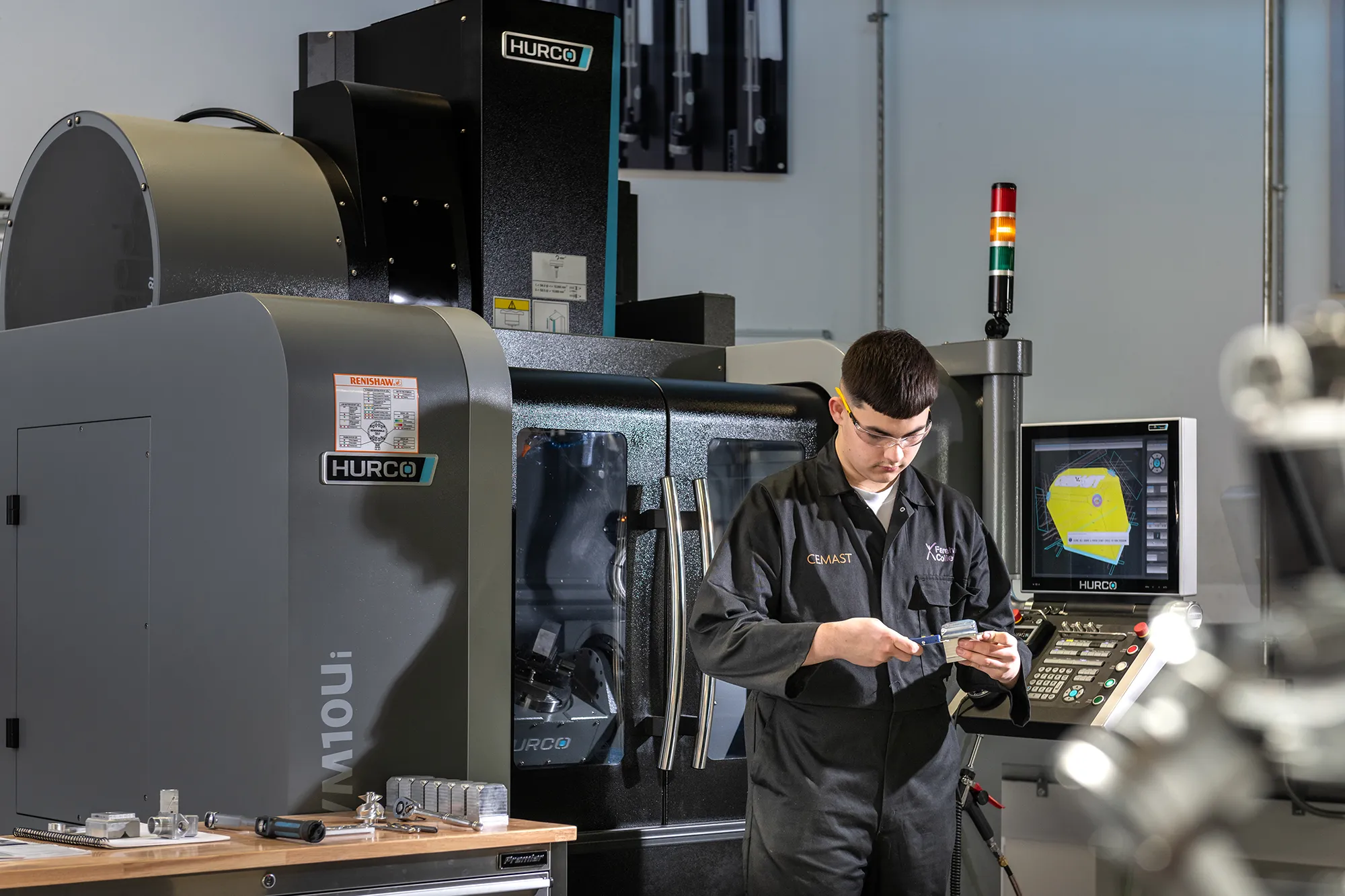
In order to meet changing customer expectations and gain competitive advantage, focus needs to be applied to developing smart factories and advanced manufacturing technologies. Manufacturing organisations will seek integration between manufacturing technology, high performance computing, the internet, and the product at all stages of its life cycle. This course will prepare you to develop your career in a world of industry 4.0 and a society increasingly impacted by the integration of cyber-physical systems and “the internet of things”.
This Higher National Certificate (HNC) course is equivalent to the first year of study on an undergraduate degree at university and you will be able to apply for entry directly to year 2 of an appropriate degree through UCAS. It is endorsed by the South Coast Insitute of Technology in partnership with Southampton Solent University.
You will study the following modules:
Engineering Mathematics
Mathematical analytical skills are critical to your future career as an Engineer and this module will enable you to acquire a deeper understanding of how these skills will be applied in a range of engineering applications. We will support you in acquiring competence and confidence in carrying out mathematical calculations applied to an Engineering context.
Work Based Project
Engineering is the process of applying scientific theory to real-world problems. This module is designed to provide you with the opportunity to do this by conducting a self-managed work-based project. The project should reflect theory and practice drawn from the options being undertaken by you and should also reflect your particular interests, along with those of an employer if you are sponsored. The completed project should reflect your ability to plan, execute and present the findings from an endeavour of your own choosing.
Computer Aided Design (CAD) and Design Process
You will be introduced to manual engineering drawing practice before progressing to the use of a computer aided design (CAD) package for modelling, assembly and automatic drawing generation of the product. Key areas of learning will include Stages of Design Process, Solid, Surface and Wireframe Modelling, Engineering Drawing, Model development and its Assembly using a latest industry standard based 3D CAD software.
Manufacturing Principles
This module helps you to develop an awareness of the factors affecting the selection of materials and processes used in manufacturing a product. You will investigate and compare different materials and understand manufacturing processes through material testing in a workshop/laboratory environment. You will then work on a group design and build project to test your skills and knowledge.
Engineering Principles
This module will introduce the key concepts of mechanics, fluids, electrical principles and heat transfer to prepare you for more in-depth applications on the course. There is a strong emphasis on practical work, including experiments involving both mechanical and electrical systems.
Computer Aided Manufacturing (CAM)
This module aims to give an understanding of CAM through Computer Numerical Control (CNC) machine principles and function, manual programming techniques. You will learn about the hardware and software essential to various CAM systems as well as considerations of quality control in CAM systems.
Course Fee
The fee shown below is the total course fee for the two-year qualification.
Awarding Body
This HNC is delivered in partnership with and awarded by Southampton Solent University.
Financial Assistance
Did you know you can take out a Higher Education Loan to pay for this course? The Student Loans Company provides loans and grants to students at college studying Higher Education and you don’t start repaying until you earn over a certain amount.
Policies
For our HE Fees, Admissions and Student Protection Policies, please visit our Policies page.

This course is endorsed by the South Coast Institute of Technology and represents a pathway to further progression towards higher level qualifications.
The South Coast Institute of Technology is a collaboration of five further education colleges and two universities. We work with well known employers to deliver industry-led courses which fill skills gaps and support the economic growth of the South Coast. You can read more about the South Coast Institute of Technology by clicking the button below. South Coast IoT
You will need at least 72 UCAS points from a Level 3 qualification such as a National Diploma or Certificate in a related engineering subject or related A Level subjects, and/or equivalent qualifications and experience. Grade 4/C or above in GCSE Maths is also required.
Successful completion of this Level 4 HNC will enable you to progress to the Level 5 Higher National Diploma (HND) in Advanced Manufacturing and from there, to university to top-up to a full degree; the HND has been designed to facilitate smooth progression into further study at Southampton Solent University and other universities.
Alternatively, this university-level qualification will enable you to develop your career within your existing workplace or through a Higher Apprenticeship.
Course ID
H4004-2425-F-Y1
Start Date
09/09/2025
End Date
28/05/2027
Day of Week
Tuesday
Location
CEMAST
Total Fees
£6,000
College is not just about your course – it’s an opportunity to have fun, meet new people and explore your interests! You can socialise with friends in the café and comfy seating areas, join a club or sports team or attend exciting events around the college. Many of our enrichment opportunities are also great on your CV or UCAS application to demonstrate your commitment and enthusiasm outside of your studies.
Your time at college can also be affected by life or health difficulties, and it’s okay to need support. Our specialist teams are here every day to listen and give advice, whether it’s about career planning, financial support, mental health, or something else. And if you have a long-term support need or medical condition, we’ll work with you on personalised learning support to help you achieve your full potential.